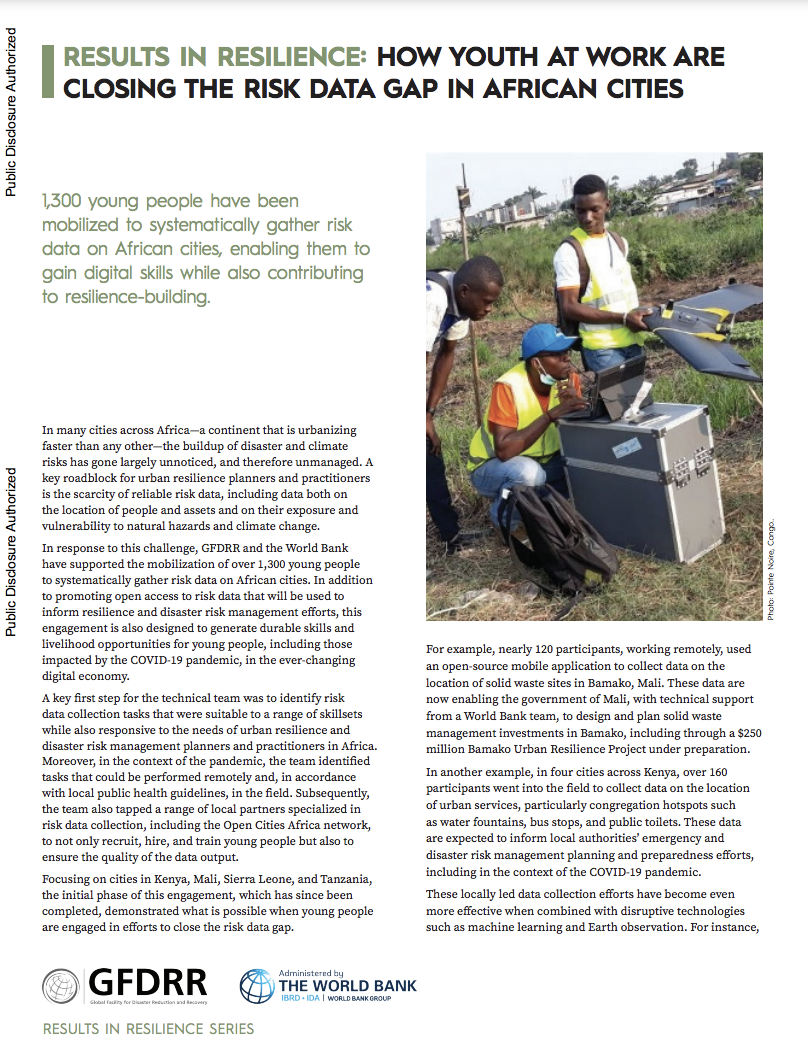In many cities across Africa, a continent that is urbanizing faster than any other, the buildup of disaster and climate risks has gone largely unnoticed, and therefore unmanaged. A key roadblock for urban resilience planners and practitioners is the scarcity of reliable risk data, including data both on the location of people and assets and on their exposure and vulnerability to natural hazards and climate change. In response to this challenge, GFDRR and the World Bank have supported the mobilization of over 1,300 young people to systematically gather risk data on African cities. A key finding from the engagement is that, even with minimal training, participants with limited digital skills can collect high-quality geospatial risk data through simplified data collection processes.
Results in Resilience: How Youth at Work are Closing the Risk Data Gap in African Cities
December 31, 2021 Read this publication

